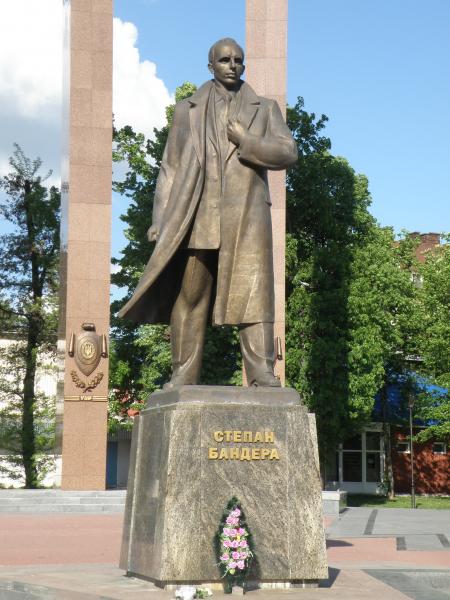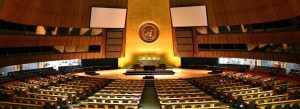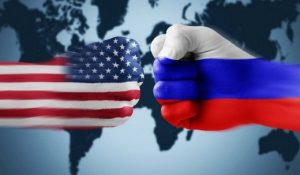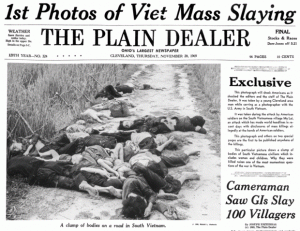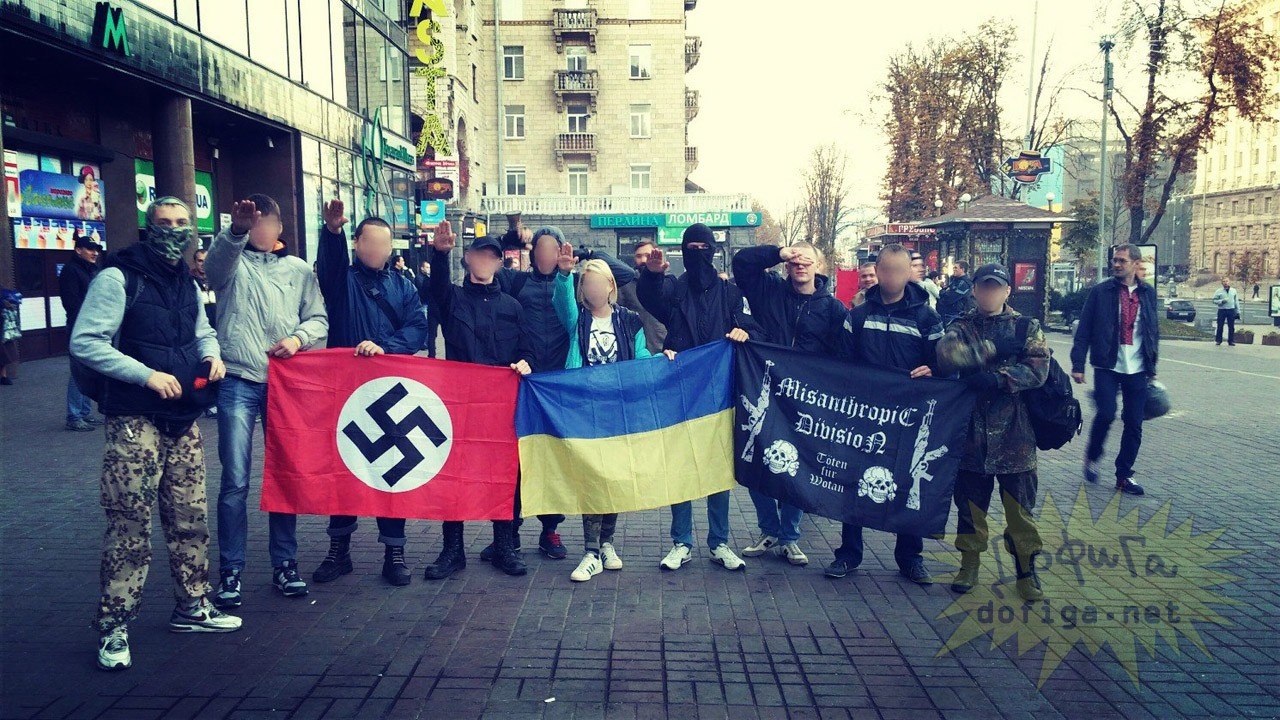
Views: 842
The great deception of “a real democracy” in the Ukraine, which the New York Times insisted on 31 March 2019, shows little sign of relenting. For five years, Western populations have been consistently misled through skewed and slanted reporting, assuring the readership that what is unfolding in Kiev is a “fledgling democracy”, as a Washington Post editorial further outlined on 6 April 2019.
In reality it was a United States-funded coup d’état. During the months prior to Viktor Yanukovych‘s February 2014 ousting, elite American organizations bankrolled the “anti-government protests”, revealed as much in December 2013 by Victoria Nuland, then a high ranking official within the US Department of State.
Nuland publicly announced that America had pumped billions of dollars through the Ukraine “in the development of democratic institutions and skills in promoting civil society and a good form of government”.
It was a clear admission of interference by a great power in the internal proceedings of an independent country, and one that shares a 1,000 kilometre border with Russia to the east.
Through bygone eras, intrusion in Ukrainian affairs could be brushed aside as old-fashioned imperial meddling. Since 1945, however, humanity’s circumstances have drastically altered and such policies of aggravation now carry with them the gravest of risks. Over the past seven decades, the earth’s inhabitants have been residing in an era dominated by the silent and sinister threat of nuclear weapons, with our world a far more dangerous and fragile place as a consequence.
Unlike China, a nation existing for thousands of years, America remains a youthful and inexperienced country founded less than 250 years ago. On separate occasions, the US and her powers-that-be have demonstrated a lack of maturity and prudence in their actions; they have moreover undertaken sometimes brutal, ill-judged and costly invasions against the likes of Vietnam and Iraq, along with an array of other outright and covert interventions.
In the broader international arena, during the First World War, among the first to notice the uncoordinated nature of American armies were the German military dictators, Paul von Hindenburg and Erich Ludendorff – two men whose power was such that, by late 1916, they could ruthlessly intervene at will within civilian life in Germany, so as to promote their war aims.
In Hindenburg’s memoirs written in 1919, he reminisced on how the previous autumn American commanders “had proved themselves clumsily” on the battlefield, and that US soldiers were “unskilfully led”. At the end of his book, Hindenburg in addition warned America’s military that, “the business of war cannot be learnt in a few months, and that in a crisis lack of this experience costs a stream of blood”.
By 1918, the US had been at war for the large majority of its existence, but Hindenburg was examining American fighting through a Germanic prism relating to the European continent.
That such a powerful and at times rash nation as America was the first to produce nuclear weapons, surely did not bode well for the planet’s future. It is in fact a wonder that planet-altering accidents did not unfold, as a result of carelessness within US command structures; during the height of the Cold War, American jets armed with thermonuclear bombs were circling without specific orders, or adequate communication, at the Kunsan Air Base in South Korea; there was no protocol to prevent a rogue pilot, or one who lost his nerve, from taking it upon himself to initiate an “execute message” with his nuclear payload.
American warships sailing gracefully into Japanese harbours all contained stashes of nuclear weapons aboard, without the knowledge of Japan’s governments, and was consequently a severe violation of that country’s sovereignty. A collision with a neighbouring US ship may have been sufficient to unleash a part or full nuclear explosion.
Fortunately, no catastrophe occurred, but the risks could have been eliminated had there been orders in place to offload nuclear cargos before entering port. Worryingly, the near constant presence of nuclear-armed American vessels in Japanese waters would very likely have constituted high priority targets in Soviet nuclear war planning, putting Japan in even greater danger.
Due to lack of secure storage for nuclear weapons underneath American jets, an uncontrolled landing or botched take-off on a runway, like in South Korea, could have triggered a partial nuclear blast in the aircraft’s undercarriage; this critical defect was known at the time by US officers, but nothing it seems was done to rectify it. Any such accident would have compelled other American jets already airborne to assume they had suffered an enemy attack; and they in turn would have responded by launching assaults on Russia, with the nuclear winter phenomenon to have followed.
Time and again unnecessary and heart-rending gambles were taken with nuclear arsenals, sometimes in the most astonishing and haphazard fashion. They were the actions of a state’s military that simply lacked the competence and rationality, in order to handle with due care the deadly weapons bestowed to their possession. By further slices of luck, no incident materialized.
In the Ukraine, it was most likely clear to all concerned that overthrowing a government in 2014 and implementing a Western client outfit, would lead to an increased chance of nuclear war between America and Russia. In 2015 Richard Sakwa, a professor of Russian and European politics, wrote that,
“The Russo-Georgian War of 2008 was in effect the first of the ‘wars to stop NATO enlargement’; the Ukraine crisis of 2014 is the second. It is not clear whether humanity would survive a third”.
Undeterred by the spectre of nuclear conflict with Russia, president Barack Obama pushed ahead with plans to install a puppet regime in the Ukraine, and in early 2015 he confirmed American involvement on CNN.
Washington’s principal ambition in the Ukraine was to install a proxy government that would enable the western superpower, along with its military arm NATO, to interfere at ease in the country’s institutions. In a double whammy, this also prevented Russia from retaining relations with her strategically important neighbour.
The European Union performed its customary role of obedience by following Washington’s lead in supporting the coup – and the EU thereafter rolled out a list of sanctions against Russia from March 2014, under the pretext of punishing Moscow for its absorption of the Crimea – a peninsula which comprised part of the Russian Empire and Kremlin-led Soviet Union for over 200 years.
Though cracks in the relationship are emerging, Europe’s subservience to American hegemony is perhaps not surprising. Of the 28 nations that belong to the EU, 22 of them are now members of the US-run NATO organization; included among these are Europe’s most powerful states such as France, Italy and Germany; while this century smaller countries have increasingly been swallowed up by NATO, some lying astride Russia’s very frontiers, like Estonia, Latvia and Lithuania. Again these policies, receiving broad acceptance and backing, have increased the possibility of nuclear disaster.
Europe’s strongest nation, Germany, and its chancellor Angela Merkel, have tended to display a notably American-friendly attitude. Though it is almost forgotten, Merkel as opposition leader was a firm supporter of the US invasion of Iraq, criticizing then head of state Gerhard Schröder for “anti-Americanism” when he moved Germany clear of the illicit intervention.
Even more seriously, as chancellor Merkel agreed in 2009 to the installment of US nuclear weapons on German soil – as part of NATO’s “nuclear sharing policy” – and without even consulting her nation’s populace. A cache of twenty B61 nuclear bombs are still in place today at Büchel Air Base in western Germany, and they represent a most flagrant breach of German statehood.
In the Ukraine president Petro Poroshenko, a billionaire tycoon who enriched himself by purchasing state assets, was a willing sycophant to Western desires. Poroshenko’s five year tenure is summarized neatly by his trip to Washington in June 2017, where he “dropped in” to visit the new US president Donald Trump, who was seemingly not keen upon meeting his Ukrainian counterpart. The White House’s then press secretary, Sean Spicer, said that Poroshenko was scheduled to see vice president Mike Pence alone, but in the end “a compromise was reached” so that he could talk to Trump.
Meanwhile, rather than Russia “fomenting a war” in eastern Ukraine as has been reported, it was largely the US-engineered overthrow of Yanukovych which instigated the conflict, that once more could have escalated to nuclear war. For months on end, Russian-backed separatists were battling neo-Nazi and fascist-linked regiments in eastern Ukrainian regions, such as the Azov, Aidar, Donbas and Dnipro Battalions. The putsch furthermore prompted Russia to initiate its aforementioned takeover of the Crimea, a few weeks after Yanukovych’s departure.
There has been a wave of recent articles pointing to the election of a Jewish presidential candidate, Volodymyr Zelensky, as proof of the Ukraine’s “transition to democracy” and disregard for fascism. Nothing could be further from the truth. There is little reference to the fact that Zelensky has enjoyed ample support from a highly influential billionaire businessman, Ihor Kolomoyskyi – who has quite a murky history and is presently under investigation by the FBI over claims of “ordering contract killings” and “financial crimes”. Kolomoyskyi has also led the way in funding the far-right Ukrainian regiments fighting in the east.
Virtually no attention has been afforded either to the growing number of far-right politicians employed as MPs in the “pro-democracy” Kiev assembly. Since 2014, numerous past and present members of the fascist Svoboda party have enjoyed work as MPs: from Oleh Tyahnybok, Ihor Mosiychuk and Mykhailo Holovko, to Oleh Makhnitskyi, Yuriy Levchenko and Ruslan Koshulynskyi.
Other far-right figures are holding parliamentary positions following the “revolution”, such as previous and current Svoboda MPs, Oleh Osukhovskyi, Oleksandr Aronets, Yuriy Bublyk and Oleksandr Marchenko. There are ex-Svoboda members, like Serhii Rudyk, concealed in “liberal-conservative” parties like the Petro Poroshenko Bloc.
This number is bolstered by a range of yet more far-right MPs sworn to office, all of whom were elected to power in late 2014, months after Yanukovych was removed: Dmytro Yarosh, Andriy Biletsky, Boryslav Bereza, Yuriy Bereza, Volodymyr Parasyuk and Semen Semenchenko. Some are embedded in apparently respectable parties like People’s Front and Self Reliance, while others are employed as “independents”.
MPs like Yarosh, Biletsky, Boryslav Bereza and Parasyuk are past and current members of Neo-Nazi parties like Right Sector, National Corps and Congress of Ukrainian Nationalists.
The great majority of the above enjoy continued employment as MPs, while established newspapers like the Guardian, on 25 April 2019, declare the Ukraine to be “a healthy democracy” that is witnessing “the prospect of a democratic transfer of power” which “the Russian president has trouble getting to grips with”. The same columnist, a prominent contributor to the Guardian, writes that,
“In a way, Ukraine is the Russia that never was. To see this helps to explain why Putin preferred to unleash war in the Donbass to letting the Maidan Revolution thrive”.
Andriy Parubiy, MP and Chairman of the Ukraine’s parliament since April 2016, has a history of neo-Nazi activity dating to 1991, and he was “a commandant in the Euromaidan” protests that partly led to Yanukovych’s demise. The briefly above-mentioned far-right figure, Parasyuk, also performed a prominent role in the “Maidan Revolution” marches.
From 2014 Parubiy has held membership of the People’s Front party; as too has the formidable commander of the Dnipro Battalion, Yuriy Bereza, who has himself sparked fist fights in parliament as recently as December –and in summer 2017 he threatened to “grab a machine gun and shoot” fellow MPs who protested the banning of the Moscow-supported St George’s Ribbon.
Western audiences are spared such grim realities as these, and for five years have been fed a diet of misinformation.
Originally published on 2009-05-08
About the author: Shane Quinn obtained an honors journalism degree. He is interested in writing primarily on foreign affairs, having been inspired by authors like Noam Chomsky. He is a frequent contributor to Global Research.
Source: Global Research
Origins of images: Facebook, Twitter, Wikimedia, Wikipedia, Flickr, Google, Imageinjection, Public Domain & Pinterest.
Read our Disclaimer/Legal Statement!
Donate to Support Us
We would like to ask you to consider a small donation to help our team keep working. We accept no advertising and rely only on you, our readers, to keep us digging the truth on history, global politics and international relations.
[wpedon id=”4696″ align=”left”]
FOLLOW US ON OUR SOCIAL PLATFORMS

